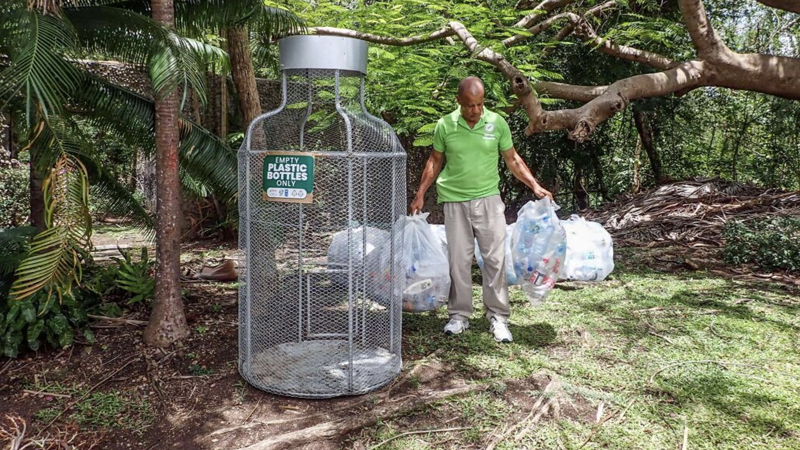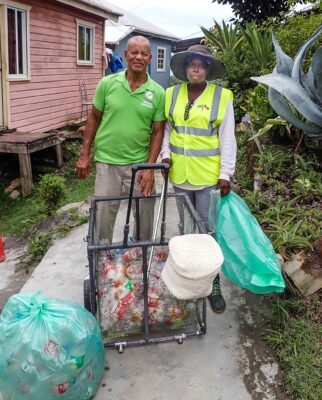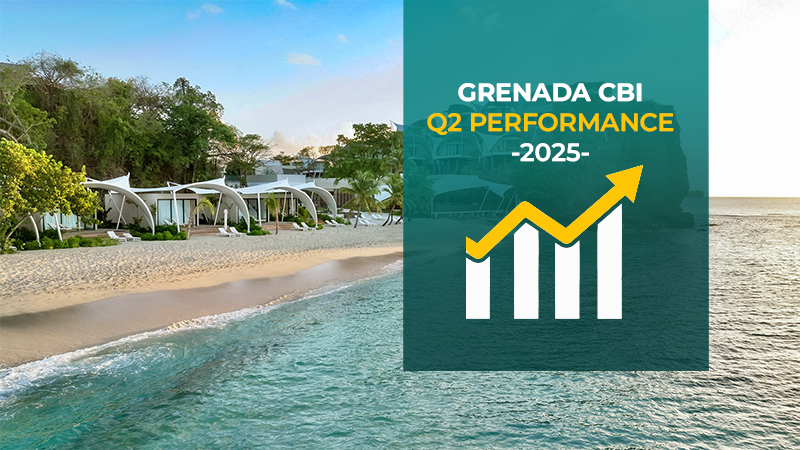Grenada, West Indies — June is a landmark month for the planet, bringing with it World Environment Day and World Oceans Day. These global observances go far beyond symbolic gestures — they represent unified calls for action. In Grenada, those calls are being answered with renewed urgency, creativity and commitment.
This year’s World Environment Day theme, “Putting an End to Plastic Pollution,” hits close to home. Plastic waste continues to impact Grenada’s stunning coastlines, marine life, and national economy. But positive change is well underway. A powerful mix of community activism, public-private collaboration, and regional leadership is reshaping the way Grenadians interact with their environment.
Driving Policy for a Greener Future
Grenada’s environmental progress isn’t only fuelled by community efforts — it’s being reinforced at the highest levels of government. Over the past few years, the government has introduced a suite of bold policies aimed at reducing environmental impact and promoting sustainability.
Among the most impactful is the ban on single-use plastics, which has been phased in under the Non-Biodegradable Waste Control Act of 2018. The ban prohibits the importation, sale, and use of plastic shopping bags, cutlery, plates, straws, and cups — culminating in a complete retail-level enforcement as of March 1, 2021. Polystyrene (Styrofoam) products are also banned, significantly reducing non-biodegradable waste across the country.
In the transport sector, efforts are accelerating to encourage cleaner, greener mobility. The government has already banned the importation of vehicles over 10 years old. Additionally the government has significantly reduced the taxes and import duties on hybrid and electric vehicles and is leading by example by converting its fleet of vehicles.
“The Government will lead by example by transitioning its vehicle fleet to electric and hybrid models. As a decisive step, we are setting a 25 percent target for all new Government vehicle purchases in 2025 to be either electric or hybrid,” said Honourable Dennis Cornwall, Minister with responsibility for Finance at the 2025 budget presentation.
These national policy measures have spurred grassroots efforts by community organisations, ensuring that Grenada’s approach to sustainability is cohesive, strategic, and deeply rooted in both governance and community.
Community-Led Action: The Grenada Green Group (G3)
Meet Grenada Green Group (G3), a community coalition driven by a bold vision of a PURE, GREEN and CLEAN Grenada. More than a name, G3 represents a growing network of citizens united in their resolve to protect and preserve their surroundings.
One of the organisation’s standout initiatives is the Plastic Bottle Collection Campaign, launched under the Recycle OECS Project. Held monthly, these collection drives are making plastic recovery routine, accessible and impactful. Over the past year alone, more than 13,500 lbs of bottles have been collected — a leap from just under 180 lbs in June 2024 to over 2,100 lbs by May 2025, showing the campaign’s growing momentum. The efforts are coordinated across various locations, drawing volunteers, families and civic groups into collective action.
According to Ian Blaikie, Secretary, G3 said, “A chance meeting at a biodiversity/circular economy seminar resulted in our receiving a proposal through Unite Caribbean to collect plastic bottles and process them, thus keeping them out of the landfill.”
Blaikie indicated that the success of the programme led to additional grants from the Grenada Hotel and Tourism Association, and from the Global Environment Facility Small Grants Programme implemented by the United Nations Development Programme. The grants require the efforts to extend throughout the island and to the sister isle as well.
The Road Ahead for a Green Future
From education drives to transport policy, Grenada is proving that a clean, green future is not only desirable — it’s achievable. Programmes like G3’s plastic bottle collection campaign are tackling waste one bottle at a time, while government incentives for hybrid and electric vehicles show a clear commitment to environmental innovation on a national scale.
With growing community engagement, policy support, and local leadership, Grenada is not just participating in World Environment Day — it’s leading by example.










